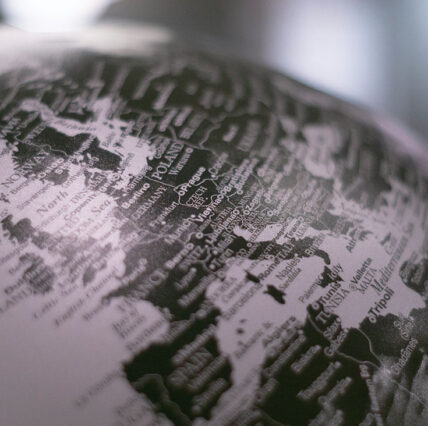Launching a New DevLab@Penn and IOM Policy Project

In an era of large-scale human movement, data and technology are increasingly essential tools for protecting migrants and shaping effective policies. The International Organization for Migration (IOM) and the Penn Development Research Initiative (PDRI)/DevLab@Penn are launching a groundbreaking partnership dedicated to addressing critical issues such as human trafficking, the impacts of disaster displacement, and future displacement modelling. By leveraging computational tools like big data and AI, this partnership will enhance understanding of migration dynamics, develop global datasets, and assess policies to ensure safer and more dignified migration. Join Perry World House, IOM, and PDRI-DevLab@Penn for a conversation on how data-driven solutions like these can advance the protection and rights of migrants around the globe.
Speakers
Koko Warner is the director of the Global Data Institute at the International Organization for Migration, and is an expert on climate change risks, impacts, and resilience. She previously managed the Vulnerability subdivision at the UN Framework Convention on Climate Change (UNFCCC) secretariat, where she guided the global adaptation knowledge-to-action hub and the Local Communities and Indigenous Peoples Platform. Warner is a lead author for the Intergovernmental Panel on Climate Change’s Fifth and Sixth Assessment Reports, including the Special Report on Climate Change and Land. Previously at UNFCCC, she supervised the loss and damage policy area. Before joining UNFCCC, Warner was founder and executive director of the Munich Climate Insurance Initiative, and scientific director of environmental migration and social resilience at UN University in Bonn. The International Council of Science named Warner among the top 20 women in the climate change debate. Warner holds a PhD in economics.
Erik Wibbels is the Presidential Penn Compact Professor of Political Science and Co-Director of PDRI/DevLab@Penn. Current major projects include research on the human impact of US deportations of Central Americans; studies on the impact of refugees on social cohesion in Kenya and South Sudan; the Machine Learning for Peace project, which measures and forecasts dynamics in civil society at high frequency; and an attempt to use NLP to measure social and political responses to climate change around the world. In his role with PDRI/DevLab@Penn, Wibbels also works with governments, international donors, and their implementing partners to improve the design and evaluation of development programming and engage in policy-relevant research around the world. We are currently leading an initiative with the World Bank, International Office of Migration, UNHCR and others to understand the impact of refugees and displaced populations on the communities and politics of the places they arrive. As part of its educational mission, PDRI/DevLab works with Pre- and Post-Doctoral Fellows, Ph.D., MA, and undergraduate students through a combination of applied research, internships, and coursework.
Moderator
Rebecca Carter is the Director of Climate Adaptation & Resilience, Global/US Climate Program at the Global Resources Institute. Carter focuses on governance issues related to climate adaptation and resilience, including the transparency, equity and inclusivity of adaptation planning and implementation processes. Her work encompasses mainstreaming adaptation across sectors and at multiple scales from national to local, climate finance, as well as transformative adaptation, i.e. shifting entire systems to better address the climate challenge. Prior to joining WRI, she was a Foreign Service Environment Officer with USAID. She was posted in Indonesia, Uganda and the Philippines, and worked on clean energy, biodiversity conservation, water and sanitation, and forestry issues, in addition to climate resilience. Rebecca earned a Master’s and Ph.D. in Cultural Anthropology at the University of Arizona in Tucson.

